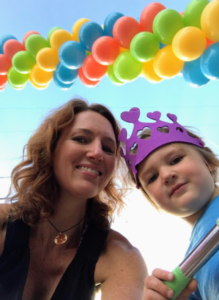mom
Welcome to another installment of Interviews with Real Female Physicians. The goal of this series is to share their story so that you, the reader, may learn and be inspired by their experiences – good and bad. We all come from different backgrounds and have different situations. Some of you are married, some are not, some with kids, some with blended families. Let’s show other women that any of these can work financially!
So let's introduce our next woman physician rockstar – Emily!
Tell us about yourself:
My name is Emily, and I’m a 44-year-old single mother of 5 children. I divorced 1.5 years ago after a 19-year marriage when I found my husband was living a dual life. I live with my kids in a relatively HCOL area, a city in Northern California on the outskirts of the Bay Area. I am an employed pediatrician at a company with great benefits and I’m relatively happy with my career choice, although obviously, pediatricians have typically the lowest compensation of all physicians. Because I was previously in the military, I had no student loans.
I have been an attending since 2003, and I’m 15 years out from residency now. If I could do one thing to change my past, it would have been to properly educate myself on personal finance much earlier in life. I did not do this until forced to by my divorce. While late is better than never, earlier is obviously better than late. The message I try to give the young physicians I meet is to do the work that it takes to make a financial plan and obtain at least a basic financial education for yourself.
Without this basic education, you are either completely without a financial plan, or you are at the complete mercy of your financial planner. I also think that anyone smart enough to become a doctor is smart enough to learn to manage their own money without an advisor.
Did you graduate with student loans?
I made the decision to join the military and they paid for my medical school in exchange for 7 years of service after my residency. So I was fortunate to have no student loans from medical school. I had small student loans from college (maybe $20K) that I paid off early after residency. I had completed 6 AP classes in high school which cut down on the number of classes I needed at the college.
I had a combination of scholarships and money earned from working during college that paid for the majority of my undergraduate education. I also lived extremely frugally during college and avoided debt.

Point Reyes
Financial aspects of kids
When did you have them?
I had my children just after becoming an attending while I was still in the military.
Are you planning to fund their college expenses?
As for college saving, I have found that is a uniquely personal decision. People believe in funding none of it or all of it regardless of cost, and everything in between. Because I had grown up poor and had no college funding for myself, I wanted to be able to help my kids with their education. I knew that there was going to be a limit on how much I could give them with 5 of them.
My goal had always been to save between $60-80K in 529s for each. As a veteran, my children can attend the UC and Cal State schools tuition-free also. With $60-80K and free tuition, they can fund all of their undergraduate education with this money if they are smart even if they live on campus.
If they go to a school close enough to live at home, they will even have money left over for graduate school. This money is my gift to them, which they can spend however they want with maintained good grades. But they know that when this money is gone, they will be financially on their own and will have to take out loans. I just reached my college savings goals this year!
What are your child care expenses?
We used daycare until we had the 3rd, and then we got a nanny. The daycare costs were still a little bit lower (compared to a nanny) with 3 kids, but the sheer work of getting 3 kids to and from daycare every day on their strict schedules and with their sick rules made having a nanny worth it even if more expensive. The children began attending a local preschool when they were old enough, and for a few years, they attended a private elementary school (relatively low cost, $5k per child per year). Then I had twins just as my military commitment was ending. I now had 5 kids under the age of 8 years old.
I could either have used nanny/private school, daycare/private school, nanny/public school, or daycare/public school but no matter how you looked at it, it was going to be very expensive, I estimated starting at $50K per year for the least expensive option. That just didn’t make a lot of sense to me. If was going to work as a pediatrician in my area I could have made about $200K/year working full time. Minimum $60K would have gone to taxes and $50K to the daycare or nanny, and I would have been taking home $90K only and missing out on a lot of my kids’ lives.
I also was not super happy with the private school. The oldest kid was struggling and the next 2 kids were not learning anything at school. It all seemed like a waste of money and time. Plus, I had to get 6 people up, fed, dressed, and to school in a 15-minute window. That was madness. I decided to try homeschooling. My husband was not initially on board, but we decided to do a trial. We kept the nanny but at slightly reduced hours. She and I worked together to teach and care for the children and I worked part-time. This worked very, very well for our family for about 8 years. I will always cherish those years I was able to spend more at home with my kids when they were young. The last few years I began working more because a great full-time job with hospitalist hours became available in my town. This was fortuitous, as it made the financial impact of my divorce much better than it could have been. Having a solid full-time physician income meant that I did not have huge financial stresses while the rest of my life was falling apart.
After the life-altering discovery that led to my divorce, I knew that I could not afford to homeschool anymore. The extra costs of the nanny just could not be maintained once we were now going to pay for 2 households. No matter how you look at it, divorce means having 2 houses when you used to have 1. You will almost always have less money as a result of divorce.
Obviously with 5 kids, once divorced, private school was out of the question. So my kids began attending the local public schools. I have been pleasantly surprised. While the academics are not anywhere near what we were doing in homeschooling, they are still adequate. The children have had the typical struggles that come with traditional schooling but learning to navigate those troubles is a great education in itself. The local middle school also has a great music program and one of my kids is really benefiting from that (and it’s totally free!).
In my area, there are no school buses, so I do either have to take the kids to and from school myself or hire my nanny to do it. Post-divorce and with the kids in public school, I still need a nanny. My mom also came to live with me and that dramatically cut my costs as she can watch the kids on my overnights and weekend shifts (she’s still working weekdays herself).
My nanny costs went from about $4K a month to $2K a month with these changes. As my children get older (they are 8-15 years old now), I am quickly getting to the end of the days where I will need a nanny. We will be navigating what having a teenager driver and a retired grandma living with us looks like in just another year.
5 kids is a lot of kids, and that is a number outside the typical for American families these days. It is also unusual to find a single doctor mom who is divorced with 5 kids. Add to that being a pediatrician in a relatively HCOL area and anyone in personal finance would think that’s a lot of bad decision making! If I had known I would end up a single mother, I might not have had as many children. I also might not have chosen to marry someone if I could have predicted that he would hurt me so spectacularly and our family would implode.
If I had known all these things, maybe I would have also chosen a different specialty (even though pediatrics was my favorite rotation) or even moved to a LCOL after divorce (even though I’m established and have family in the area). BUT, I would not have the wonderful children I do have, I would not have the life experience and education that came from my divorce, I would not have the career I wanted, and I would be living somewhere away from my family just to save money. I’ve learned to not be offended when I read articles about the financial “mistakes” some would say I’ve made. I did the best I could at every step of the way with what I knew at the time.
Financial aspects of marriage
Are you married?
I am now single, divorced after 19 years of marriage.
Did you get a pre-nuptial or post-nuptial agreement?
We met and married in medical school when we were both broke, so no pre-nuptial agreement.
Did you and your husband agree on finances?
We had similar financial education (none) and both grew up poor. Both of us were the first people in either of our families of origin to go to college, let alone medical school. In our families, everyone worked until they could afford to retire or became too old to work (more common) and lived with younger family members. I know I never even considered that we might retire early. I thought because we were saving some in the TSP (military equivalent of a 401K), had no student loan debt thanks to Uncle Sam, and had little debt outside of primary home/modest cars that we were doing great financially. Compared to our family members from both our families of origin, we were in a fantastic position financially.
Compared to FIRE aficionados, we were nowhere near anything resembling a financial house in order. We had no financial plan. We did not live like residents for years after residency. We did not save maximally annually in tax-advantaged accounts. We did not have DI or a trust. We also pulled out of the market in 2008 from fear/lack of education.
Financial advice I would give younger women considering marriage:
- Understand that while there is a romantic and maybe a religious aspect of marriage, once legally married you are 100% financially tied to this person. If he decides to take out huge debt, you are on the hook for half of it. If he has a gambling problem and loses all “your” money, you have no recourse. If you decide that you don’t want to be married for whatever reason, you will both pay a lot of money and it will take significant time to untangle yourself financially from this person. You can still choose wisely and find yourself somewhere down the road of life in your personal nightmare. I would advise higher earning women to consider not legally marrying, and definitely using a pre-nuptial and post-nuptial if they do legally marry. I have been surprised at the number of marriages I see now where the couple has a religious or formal ceremony and wear rings, maybe even with a legal name change – yet they are not legally married. They don’t want the financial and legal hassle of divorce if their relationship does not work, but they still want to publicly declare their commitment to each other. Financially, this is a much better option than legal marriage for the higher earner. It also makes sense for the dual high earners, who pay quite a bit more in taxes than they would if they were single and legally cohabitating (the so-called marriage penalty). My ex and I paid about $30K extra a year on our taxes while married than we would have if single.
- Educate yourself on your money. So many otherwise smart and professional women leave all of the finances to their husbands and do not know about their money. If you want him to do the work and make the decisions, that’s fine. However, you must know the basics yourself. If he was to die or get sick, you need to be able to take over your finances. If you were to divorce, having a basic financial education will make the process not quite so terrifying. It is dangerous to fully trust anyone, including your spouse, with your money and not know your financial status at least peripherally.
- Do not consider yourself to be divorce or catastrophe proof. So many people think divorce would never happen to them. But the sad reality is that every divorced person I know did not get married thinking they were going to get divorced. Not a single one of us thought it would happen to us, or we would have obviously made a different decision. Life catastrophes besides divorce happen as well. Either spouse could have illness or injury impairing their ability to work. If one of you is injured or ill, do you have adequate DI to cover your expenses? DI ends at 65, and you have to have enough saved for retirement or else you will be dependent on Social Security from the government and likely the charity of family. That means that after illness or injury, you need to have MORE money than when you were working so that you can save for your retirement still in a taxable account. You also may need more money if you or your spouse cannot perform household/childcare responsibilities or if one of you needs extra care as a result of your changed life circumstance. I was naive enough to think that my high-earning spouse was my DI while married. I am so fortunate that I was able to purchase DI at the time of my divorce when I was 42. If I had any medical problems and could not get a DI policy, I would be one illness or injury away from financial ruin as a single mom. Your ability to work and make money as a doctor is your single biggest asset, and you need to have adequate DI, regardless of your age or relationship status, until you are completely financially independent.
Have you made any financial mistakes?
- Not having DI until I got divorced.
- Not having basic financial education or a financial plan until divorce forced me to.
- Not maximally saving for retirement from an early age in tax-advantaged ways.
- Pulling out of the market in 2008 due to fear/lack of education.

View from East Brothers Lighthouse at sunset
General Finances
What’s your FI (financial independence) number?
My personal number is 2 million, which will generate a minimum of $60K annually (using a 3% safe withdrawal rate). I have $30K passive income (a combination of VA disability for me and a portion of my ex’s military pension). I am anticipating at least a $60K pension if I retire from my current job (current value is $24K annually). This will give me $150K without social security, which is more than enough.
I think a lot (probably too much) about FI and retirement. I am very much looking forward to the freedom to choose how much to work, and if I want to work at all. Having to work every month to make a certain amount of money to pay my bills is the opposite of freedom. I am still in the accumulation phase, though. Part of my dilemma is that my company offers healthcare for life and almost full pension if you work until 60. Although I will likely have enough to retire by 55, choosing to leave before 60 means paying for healthcare until I’m Medicare eligible and losing out on those years of pension. I would still get my pension at 65, but I would miss out on the 5 years of pension payments from 60-65. Given that I am financially risk-averse, I expect that I will stay until 60 but that I will cut down at some point to the 60% FTE needed to keep my eligibility for this early retirement benefit.
Are you DIY or do you have a financial advisor?
I have never really trusted financial advisors, having heard horror stories. When faced with an impending divorce, I knew that I needed some financial education STAT. I began reading everything I could get my hands on. I started with Suze Orman and Dave Ramsey, both of whom have excellent basic financial education books. I started looking at money blogs like MMM, WCI, and POF. I read all the classic books like Rich Dad, Poor Dad; The Millionaire Next Door; Millionaire Teacher; Bogleheads Guide to Investing. I developed a financial plan and educated myself on how to maximally save in tax-advantaged ways. I began working towards FI. I’m too old for FIRE, but not too old for FI. Once I started on the path of financial education, I learned enough to know that not only did I not need a financial advisor, I would get to my goal faster without one.
What is your net worth?
My net worth without my home is $650K, with my home it is $750K. I know that at 44 I should have a lot more money than that saved. However, I also know that there are people my age with nothing saved also. I try not to be too hard on myself for my later start in saving.
How are you saving for FI/retirement?
I am saving a total $55K per year at work through 401K, employer contribution, and mega backdoor Roth. I am also saving $5500/year in a backdoor Roth. So I am saving the maximum amount I can in tax-advantaged accounts as an employed physician of $60.5K annually. All of my money is in the standard 4 index funds (US stock, US bonds, international stock, international bonds) with an allocation of 20% bonds and 80% stocks. I rebalance annually for the money, not in target retirement funds. If I have additional money beyond the $60.5K, I have been paying down mortgage debt. If/when the stock market crashes, I will likely put that extra money into the market. But with the market at a current all-time high, paying down debt makes more sense to me than investing with the small amount of extra money I have.
I own stock in my company, as we are required to purchase when making partner after 3 years. The current value of this stock is $105K. I do not own any other individual stock nor plan to in the future.
Biggest financial failure/regret:
Without a doubt, my biggest regret is not starting sooner. I know that if I had this knowledge early in my career, I would be FI by now and likely retired.
One thing you wish you knew:
I wish that I had been given a financial education as I was growing up or sought it myself as I became an adult. There is this interesting difference between professional men and women. Professional women are more likely to lack basic financial education or have a financial plan than professional men, even though they are intellectually capable of it. We are not taught about money as young girls. We often have male partners that are in charge of the family finances. The longer we go without a financial plan or education, the more shame we feel at our financial ignorance. With this shame, we are then less likely we are to seek financial education, and the vicious cycle continues.
Do you have insurance?
DI – I have 6 months of sick leave through my job and then two DI policies that will almost 100% replace my salary. I have a policy through my work at 60% of pay non-taxable, and a small personal policy up to the max limit I was allowed to insure myself. For about $5K a year, I have no worries about illness or injury causing complete financial devastation for me and my children.
Life insurance – 2 million
Umbrella – 2 million
Do you give to charity?
I give 10% of my income monthly: a combination of tithing to my church, assisting poorer family members (with appropriate boundaries), and various charitable organizations.
Any parting words of wisdom?
Educate yourself about your money. Save as much as you can. Learn from your “mistakes” and move on. Don’t compare yourself to others, as you only know what they want you to know, and that is rarely ever the whole truth.
Tell readers a fun/random fact about you:
I can read a book a day, and would do this every single day if I didn’t have to work to make money!
And … that's a wrap! If you're interested in doing this please send me an email – I'd love to hear from you!
Ummm, Emily is an inspiration!
Read MoreWelcome to another installment of Interviews with Real Female Physicians. The goal of this series is to share their story so that you, the reader, may learn and be inspired from their experiences – good and bad. We all come from different backgrounds and have different situations. Some of you are married, some are not, some with kids, some with blended families. Let’s show other women that any of these can work financially! So let's introduce our next woman physician rockstar – Melanie!
 Tell us about yourself:
Tell us about yourself:
I am a divorced mother of a special needs kid living in a HCOL area on the West Coast. I have been an attending obstetrician gynecologist for over a decade. Pretty much went straight through school with only a year off and I count my blessings that I didn’t take my sweet time. I think if I were to pick a specialty at this age it would be dermatology [Editor's note: It is THE best field]. But having picked my specialty in my 20’s, it was the right one for me at the time. I loved the subject matter: deliveries, surgeries, clinic, women’s health, birth control, abortions.
But the wear and tear on my body and my psyche have been immense over the last 14 years. A more peaceful practice with flexibility to raise my kiddo sounds amazing right now. I grew up on the East Coast and although I love the West Coast weather and all the wonderful hiking, skiing and climbing it affords me, I regret not staying closer to home so that my parents can watch my child grow up.
Did you graduate with student loans? How much & what are the interest rates?
I went to a private university and public medical school. I was lucky and my grandfather paid for college. I left medical school with about $35,000 in loans at an interest rate of about 2% that dropped to 1.75% after I paid it on time monthly for a year. I did receive scholarships and loans throughout although I cannot remember how much. I had worked throughout college and medical school in work study programs. I lived in student housing during residency and managed to save about $30,000 during residency.
How fast (or not) are you paying them off?
Because of the low interest rate on my loans I did not pay them off until about 8 years after residency. But enough was enough, I wanted something happy to celebrate that month and paid them off happily. It was also one less bill and account to keep track of on Mint.
If you’re not quite sure where to start or what to do, consider hiring Travis @ Student Loan Planner to help you with your student loans.

Financial aspects of kids
When did you have them?
I had my child when I was already an attending. I made sure I had been working at the job for at least a year to make sure I had full benefits and saved all my vacation so that I could take four months of mostly paid maternity leave.
What are your child care expenses?
He goes to public school with a one-on-one aide paid for by the school district. We pay a nanny about $19/hr to take care of him after school and during vacations, which runs anywhere from $200-$1000/week. The state helps fund a portion of my nanny expenses. I have about $55k in a 529 plan right now that I will likely convert due to the ABLE act for disabilities. We also have a Special Needs Trust.
Financial aspects of marriage
Are you married?
I am divorced.
Did you get a pre-nuptial or post-nuptial agreement?
I had gotten a prenuptial agreement beforehand due to vast differences in finances and the fact that he had been divorced prior to our marriage. I did not want to get married at all but he wanted to, so I acquiesced, and he suggested the prenup. Therefore, I might have ended up poorer due to the marriage to a certain amount but not as much as I would have if we had not had the prenup.
What have you learned financially from divorce, and what advice would you give to unmarried women planning to marry?
By the end of the marriage I made almost 3 times his salary. He got to write both the prenup and the marriage settlement agreement so no wool was pulled over his eyes. Although because he managed all my finances while we were married, I didn’t really understand my finances coming out of the marriage, which frightened me and caused me to become obsessed with making sure I learned everything I could. There is a suspicion that he might have been squirreling away money for himself a year before we separated but I am doing ok without that. I also ended up helping him pay off a large chunk of his student loans while we were married.
Have you experienced a financial catastrophe?
I have been lucky and have experienced no financial catastrophes thus far. I had resigned from a stable well benefited job with a pension over a year ago for the unknown. I currently am barely taking in house call (which I realize I hate), doing part time clinical work and part time contract non-clinical work.
And I absolutely love it!!! When you don’t do the same thing day in and day out burn out is prevented. You don’t get repetitive stress injury and you don’t have to deal with politics at your only place of employment. It is mind blowing and soul freeing! I also have 6 or 7 different streams of income and multiple employers have all asked me for more time so if one stream ever dries up, I will never be without employment. The best thing is that I have found remote non-clinical work that pays 6 figures a year. The downside of contract work is the lack of benefits but my part time clinical job provides the benefits. The part time clinical job is lower paying but unionized and extremely flexible. I love all my jobs now!!

General Finances
What’s your FI (financial independence) number?
Financial Independence is a tricky thing. I guess you can say I am there since I don’t practice as a traditional obgyn. Some of my friends joke that I am retired. I took my first 24 hour call in over a year and realize that is my idea of hell on earth. I wasn’t willing to do it unless my locums company paid 1.5x my normal rate. That is my idea of financial independence. No one can tell me what to do. If I don’t want to do it, I don’t. I have the money to say “No”.
Real financial independence will remain elusive for me because I am a single parent of a special needs child. My child may always need support throughout his life and beyond my life. My goal at this time is to somehow accumulate $30 million in order to fund a community for the disabled not just for my child but also for others.
Are you DIY or do you have a financial advisor?
I do not have a financial advisor but am thinking of getting a robo-advisor that will do tax loss harvesting for me.
What is your net worth?
I have a net worth of $1.8 million dollars.
How are you saving for FI/retirement?
I max out my retirement accounts annually. I have a 401(k), SEP IRA, 403(b) and traditional IRA and have not done a backdoor Roth IRA. I am conservative in my cash investments, mostly in a money market account and I also hold mutual funds/index/bond funds outside of my retirement accounts. I have paid off my home and have no mortgage. I do not know my asset allocation as of this moment as I am trying to figure that out.
Do you have insurance?
I have disability insurance from residency time but not at high amounts. I am in the process of buying life insurance.
What is your biggest financial regret?
My biggest financial regret was not putting excess cash in the stock market 2 years ago after a windfall because I thought the market was too high. After some more reading, it seems the stock market tends to go up a lot more than it comes down and I lost out on the 20% gains on a large chunk of cash that sat in a MMA for 1% interest rate. That is why I need a financial advisor since I am too chicken sh** to invest myself.
Do you give to charity? If so, where and why?
I give to charity: school, special needs groups, ovarian cancer and anyone who asks.
Any parting words of wisdom?
Live life with purpose and happiness now. Do not suffer today for possible better security tomorrow since that day may never come. I have no regrets. There is no room for regrets. Depression and anxiety can happen when you regret the past and worry about the future. Be present now.
There is a reason for everything that happens in your life. Always believe that you are in control of your life and you will be happier. Do not think “things happen to you.”
And … that's a wrap! If you're interested in doing this please follow the instructions here!
Melanie is one kick-ass single physician mom! I'd love to hear from more single moms!
Read MoreWelcome to another installment of Interviews with Real Female Physicians. The goal of this series is to share their story so that you, the reader, may learn and be inspired from their experiences – good and bad. We all come from different backgrounds and have different situations. Some of you are married, some are not, some with kids, some with blended families. Let’s show other women that any of these can work financially! So let's introduce our next woman physician rockstar – Heather!
Tell us about yourself:
Hello, I’m Heather. I’m family medicine and a brand-new attending. I practice both inpatient and outpatient medicine at an academic hospital, and enjoy spending time teaching residents and students in addition to my clinical duties. I was born and raised in a medium-sized city in the Midwest with the greater metropolitan area approaching approximately 1 million. Both of my parents are practicing physicians. They gave me a small amount of money toward my education (to be applied toward undergrad), but otherwise the rest has been paid for through scholarships and loans. I came back to the same city to complete my residency and am now just starting faculty. Because my parents both work, they aren’t incredibly helpful with childcare, but it is still wonderful to be close to family! My husband is in his final year of surgical subspecialty training, and also plans to work in the academic setting upon his graduation. I have two young children, and am expecting my third child soon. I can’t say I have much time for hobbies after just finishing my training in a dual-physician household with young kids. In my former life, I enjoyed soccer, skiing, traveling, reading, and spending time outside. I went into medicine because I love helping people reach their greatest health potential. In family medicine, I feel I am in a unique position to do this as I am able to care for patients in the clinic, providing preventative medicine, education, and chronic disease management. When patients are sick, I am able to see them in clinic and also care for them in the hospital. I especially enjoy working with underserved patients, and academic medicine allows me to have a great diversity of patients with the majority of my patients not speaking English. Most days, I am happy with my decision, although it is frustrating the amount of paperwork and non-clinical duties I have to complete. It is sometime frustrating when seen as a lesser physician than specialists, especially when I graduated cum laude from medical school and as a member of AOA, and have such a wide breadth of practice.
Did you graduate with student loans? How much & what are the interest rates?
I went to a state school, and originally took out about $170,000 to pay for my education. Interest rates were between 5.16% and 7.90% and all unsubsidized. I did receive a partial scholarship all four years. I was awarded a full ride scholarship to a different school, but elected to go take out the student loan burden to attend medical school in the same city as my husband. While I would make the same decision again, it is frustrating to think of how my financial situation would be different without this loan burden. My husband graduated medical school with a similar loan burden.
How fast (or not) are you paying them off?
I paid off one loan in medical school, a Grad PLUS loan at 7.90% interest for only $3,000 taken out my first year of medical school. I paid this off my second year, when I was able to take out an unsubsidized loan at a lower interest rate (6.55%, so only a bit improved). I have not yet paid off my loans or refinanced them, although I am in the process of refinancing at the moment now that I am an attending. Although I qualify for PSLF, I am not pursing it as it makes me too nervous. I have paid the bare minimum through income based payments throughout residency, and my loans are now over $200,000 (yikes!). However, we have paid off more than $100,000 of my husband’s loans. We knew that my loans were much more likely to qualify for forgiveness or PSLF than my husband’s, and that I would be an attending sooner (thus able to refinance), so we’ve paid anything we can toward them in residency. I am comfortable with this plan and completely trust my husband, although I understand that some may not take this approach. We plan to continue to pay his off as aggressively as possible, and hope to be done with his loans in about 18 months. We will then aggressively pay mine down, and hope to be done within 4-5 years.
Financial aspects of kids
When did you have them?
I have two kids, and a third on the way. The first was born my fourth year of medical school, and the second in residency. They are both young, and when my next child is born, I will have three children under age four.
Are you planning to fund their college expenses?
Our kids do have 529s set up, although we haven’t significantly contributed to them given our own student debt. We encourage grandparents to gift toward them instead of extra toys for birthdays and Christmas. When no longer with our own debt, we would like to fund them with enough for them to attend an in-state university.
What are your child care expenses?
We have used day care exclusively for my children. I did not feel comfortable with a nanny or spending time alone with infants, so went the daycare option. We are overall happy with our decision, although sick days and drop off/pick up times have been stressors in the past. I currently spend $1200 per child per month, which means I will soon be spending $3600 each month in childcare. This is, by far, our largest monthly expense. We also spend quite a bit more on trusted babysitters (especially college-aged family members) to help us with early morning, late evenings, nighttime, and weekend coverage. Now that I am an attending, I have the luxury of more predictable hours.
Are your kids in private or public school? What is the cost including after care if needed.
We plan to send our children to public school when they start kindergarten, as we have good public schools in our area and like our children to be exposed to diversity.
Financial aspects of marriage
Are you married?
I am married.
Did you get a pre-nuptial or post-nuptial agreement?
We got married in medical school and had no prenuptial agreement – we only had debt at the time!
Do you and your husband agree on finances?
We agree on finances, largely because I am responsible for almost everything financial in my household and my husband agrees with my decisions (and is grateful he doesn’t have to do it)!
What financial mistakes have you made?
I probably could have taken out slightly less student debt as I graduated with approximately $10,000 in my bank account. I did eventually use this to pay down student debt, but was worried about keeping enough of an emergency fund available. I contributed the maximum amount my Roth IRA since I was 16, however, I put the money in and didn’t invest it for quite a while because I was overwhelmed with the options. While I am grateful for this money, I wasted the benefits of years of compounded interest.
Have you experienced a financial catastrophe?
We have been fortunate to have avoided any financial catastrophe. 
General Finances
What’s your FI (financial independence) number?
We don’t have an FI number, largely because it seems too far away at this point. We are aggressively paying down student loans, and then would like to move to a bigger (but still modest) house. I am working 80% as an attending, but would love to decrease that further to 50-60% in the future if financially able (and my department supports this!).
Who handles the finances in your relationship? Are you DIY or do you have a financial advisor?
I handle almost all the finances in our relationship. We DIY. This does result in some mistakes (such as not investing Roth IRA initially, as mentioned above). I do budget through Mint, more to track our spending. Both my husband and I are fairly frugal. We rarely spend money on entertainment, eating out, or travel. Any leftover money not used by childcare, mortgage, monthly expenses, or to replenish our savings/emergency fund goes toward loans. As we finish our training and have more control over scheduling and finances, we would love to travel more.
What is your net worth?
We do own a modest 3 bedroom home. It was purchased at the start of residency for around $175,000, as we had a dog and a monthly mortgage was cheaper than renting a house with a yard. We also knew we planned to be in the city long-term. It is currently valued at $230,000. We are hoping to pay off our student loan burden (or at least be close!) before moving to our “forever” home. I don’t plan on a new build or anything extravagant, but I do wish for a bit more space for our growing family! In addition to our student debt and mortgage, we do have one car loan. When we found out we were expecting our third, we needed something bigger than a compact sedan to accommodate three car seats! We are typically pretty opposed to financing things, but our car interest rate (0.5% for three years) is so much lower than our student loan interest rates (lowest rate 5.16% and most at 6.55%) that we used the money for the car to pay down our student loans and will both be attendings to pay off the car loan before the three years are up. I am fairly conservative and keep at least $10,000 in our emergency fund. I know I could probably get by with much less, given that we are a dual-physician household, but with young kids and a current pregnancy I don’t want to be caught surprised.
How are you saving for FI/retirement?
We both contributed to Roth IRAs maximally from age 16 until starting medical school. Neither of us contributed anything in medical school. We then contributed to our Roth IRAs maximally in residency, but no other contributions. Now that I am entering the attending world, I will have a 403(b) and 457(b). As a university employee, I get fairly generous matching starting next year (2019). We plan to maximize these contributions starting next year. The area of finances I feel most deficient in is investing. We do our investing ourselves. I admit I don’t fully understand investing/the market. Most of our money is in index funds, like the S&P 500. I would like to learn more about this in the next year to better invest my money.
Do you have insurance?
We both have term life insurance, no whole life insurance. We both have personal, own-occupation disability insurance. We have umbrella insurance through our home/car insurance company. We’ve never had to use it. We also just established a revocable trust and updated will.
Do you give to charity? If so, where and why?
We give to charity, although only about 2% of our net income. We would like to give closer to 10-15%, as soon as our loans are paid off. We currently/plan to contribute to our church, our undergraduate university, and local organizations we support.
Any parting words of wisdom?
Our financial plan largely comes from White Coat Investor and Dave Ramsey. We are financial amateurs, but we at least know where our money is going each month and can use that to cut it down to the bare minimum to allow for loan repayment. We are both so excited to be a bit more loose with our money as soon as we don’t have that over our heads!
Tell readers a fun fact about you
I took a month off between residency and starting as an attending, and it was wonderful to spend time with kids, catch up on life/adulting, and be able to read my first book for pleasure in 5 years (whoops!)
And … that's a wrap! If you're interested in doing this please send me an email – I'd love to hear from you!
I loved reading Heather's story and I hope you did too. I was totally inspired about reading how she was able to take control of her and her husband's finances and get on track for financial freedom.
Read MoreWelcome to another installment of Interviews with Real Female Physicians. The goal of this series is to share their story so that you, the reader, may learn and be inspired from their experiences – good and bad. We all come from different backgrounds and have different situations. Some of you are married, some are not, some with kids, some with blended families. Let’s show other women that any of these can work financially! So let's introduce our next woman physician rockstar – The Frugal Physician!
Tell us about yourself:
Hello! Many thanks to Miss Bonnie for having me on here. Like many of you, I’m a multitasking, sometimes malwired machine that runs on caffeine. You can call me… The Frugal Physician (cue theme music). I’m mommy to two toddler boys, wife to my trophy husband (he loves it when I call him that), blogger at www.thefrugalphysician.com, and primary care physician trained in internal medicine. I dream of one day owning a jazz club and crooning at the piano in fancy dresses. They won’t be able to kick me out because I’ll own the place! And, I’m banning tomatoes. Anyway, until then, I’m focusing on being frugal and paying off debt. I live in Upstate New York (also known as “not the city”). I’m in Internal Medicine. So basically, I’m Dr. House…minus the cane and the opioid addiction. I started off in Hospital medicine and then switched to primary care. You’re going to think I’m nuts, but I LOVE primary care. I love being the first diagnostician my patients see and I love building relationships with my patients.Are you a resident or attending?
I’m the boss, baby. Not really, I’m employed. I’m an attending 3 years out of residency.Did you graduate with student loans? How much & what are the interest rates?
I graduated med school with $191k in student loans but by the end of residency they had grown to $237k, despite the $25k of payments I made in residency. I found myself on the wrong side of 6-8% compounding interest when $18k of interest compounded as I switched to standard repayment as an attending. So frustrating!How fast (or not) are you paying them off?
Oh yeah, I’m burning through them. First I refinanced with Sofi. This year, I’ve paid about $120k in 9 months towards the blasted student loans. Why? Because student loans weigh down my soul and crush my happiness. And, I did the math. If I put everything I’ve got towards the loans and burn through them, I can still catch up on investing by the end of 10 years. See my post “Counting Macaroni’s.” My goal is to buy my freedom! Once the student loans are gone and I have a good stash of savings, I really feel like I can be a better doctor. I can advocate for my patients and for what I think is right without fear of not being able to feed and clothe my kids if I lose my job. My dream is to one day start a non-profit, cash only clinic with a graded pricing scale based on income.Financial aspects of kids
When did you have them?
At the very end of residency and in second year as attending. Wouldn’t recommend that. In hindsight, having them both in residency would have been better. Being a nursing, sleep deprived new attending blows. We have a lot more protections in residency as far as benefits and work conditions go.Are you planning to fund their college expenses?
Yes, once I’ve paid for my schooling expenses. Right now, they have regular brokerage accounts for the money they get for birthdays, etc. I’ll roll that into 529’s once they meet the minimum required for the state.What are your child care expenses?
$2200 a month for daycare … barf. Still going.Are your kids in private or public school? What is the cost including after care if needed.
We’re going public. Free school! New York taxes sucks but they pay for nice schools.
Financial aspects of marriage
Are you married?
Married to a studmuffin.Did you get a pre-nuptial or post-nuptial agreement?
No, wasn’t smart enough to think of that. I was a broke resident not Jay-Z, so my head just wasn’t there, you know?Do you and your husband agree on finances?
Mr. Frugal Physician was always on board with the idea of achieving financial independence. Agreeing on deflating our lifestyle and increasing frugality took some time to achieve. Key to our success are monthly budget dates, where we can realign our goals and our spending habits.Does your spouse stay at home?
No. He did that for two years and that didn’t work for us. He is a lot happier working. Staying home is a lot of work!Are you the breadwinner?
Used to be for the two years Mr. Frugal Physician stayed at home, took care of our baby, and worked on his masters. It was tough.Financial Mistakes
What financial mistakes have you made?
Oh boy where do I start. Wish I had started a Roth IRA in college when I was working 3 jobs. Right out of residency, I inflated my lifestyle to my attending salary, which was a big mistake. We reversed course and deflated the lifestyle within two years. More about this on my blog.Have you experienced a financial catastrophe?
Yes, our house flooded with Hurricane Irma. Flood insurance doesn’t cover everything you might think. Biggest lessons: read the insurance policy and talk to insurance provider before making any changes to areas of the house that might flood. Keep a written record of all communications with the insurance company.
General Finances
What’s your FI (financial independence) number?
$2.5-3 mil. Calculated by using the 4% rule: Yearly expense x 25. I don’t plan on retiring when I reach FI, though. Being idle is not my forte. I just want the option and the freedom.Who handles the finances in your relationship? Are you DIY or do you have a financial advisor?
I do. We met with a couple of financial advisors, but I really wanted to learn how to do it. I’ve found DIY to be much better. I get much better returns than my financial advisor just investing in low cost index funds.What is your net worth?
About $165k including home equity. Up from the negative $100k or so just a couple of years ago.How are you saving for FI/retirement?
IRA’s, 401k’s, HSA. But currently, most of our extra money is going towards paying down student loans as fast as possible. Asset allocation is 80:20 stocks to bonds. Plan to get into real estate more in the future.Biggest financial failure/regret:
Just wish I had started saving earlier.One thing you wish you knew:
That I didn’t have to finance my lifestyle in medical school! Wish I had been more frugal while in school and had taken out less debt.Do you have (long term) disability insurance? Life insurance? Umbrella?
Yes to allHave you had to use (long term) disability insurance?
Thankfully, no.Do you give to charity? If so, where and why?
Yes! Giving brings me a lot of joy. Since we don’t have extra money right now, we donate our time. My husband and I volunteer to cook meals for the Ronald McDonald House. We did a lot of fundraising this year for the Leukemia and Lymphoma Society.Any parting words of wisdom?
Just spend less than you earn. Invest the rest. Read J. L. Collins’ “Simple Path To Wealth.” Plug into the financial independence community and you will learn a lot!Tell readers a fun/random fact about you:
I used to have an elephant mow my lawn! I’m a first generation immigrant. In India, we had an elephant that lived with her caretaker in our neighborhood. Her name was Jamuna. She would come around and give us rides. My parents would let the grass grow long enough for her to eat and then let her have at it!And finally, where can people connect with you?
Come subscribe to The Frugal Physician at www.thefrugalphysician.com, follow me on Twitter @FrugalPhysician!And … that's a wrap! If you're interested in doing this please send me an email – I'd love to hear from you!
I love how The Frugal Physician is crushing her debt at lightning speed. Go check her out! ]]> Read MoreLife Hacks post. She blogs at PracticeBalance.com about finding balance as a physician mom. She and her husband are financially independent. You can read her interview here. The other day, my 2 year old daughter asked, “Who gave us this house?” We both paused and looked at each other. “Um… No one. We bought it with our own money that we made ourselves.” This is the first time we had talked to her about anything related to money, and I’m sure it won’t be the last. As she grows up, she’ll no doubt deal with the marketing of products directly to her, comparisons to friends, cases of the “I wanna’s”… then ultimately management of her own earnings and debts.
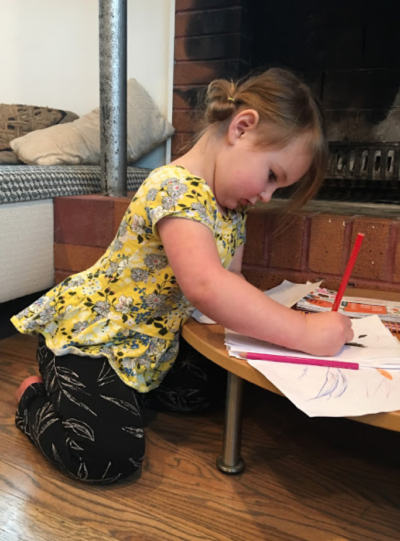
Always creating and learning
Unlike some families where money is a taboo subject, we hope to have many money conversations with our daughter as she matures, because financial responsibility is very important in our family. We’ve worked hard over our adult years to become financially independent and free from any debt or mortgage, which has allowed us to both work part time. When I was a young girl, I never felt that my family was in a state of lack. But I also never grasped the mathematics side of money, the finiteness of it. That all changed when I became a mother. Although my husband had been equating money with life energy for many years at that point, I didn’t see it until I had this being in front of me that I wanted to spend all my time with. I had spent years, tears, money, and life energy to have her (due to infertility), yet she was priceless. Any time at work was suddenly time away from her.
One of the lessons I really want to teach my daughter is the idea of value. Value is relative and individual, as one person’s prized possession can be another’s throw-away item. Likewise, the way we prefer to spend our time (which ultimately equates to money) can vary drastically from person to person. I cringe when I hear people use the words, “We can’t afford it.” Kind of like saying, “I can’t eat that cupcake” or “I don’t have time to do ______”, it’s rarely true in a literal sense. You can if you want to, but you choose not to, for whatever reason. It’s a mistake made often by people in all financial situations, both wealthy and poor.
What harm is done in saying “we can’t”? It sets a tone of scarcity vs. abundance. The scarcity mindset keeps us from feeling we have choices or control over our financial situation. It places issues in a negative light, such that we make decisions out of fear and compare ourselves to others. On the flip side, being valueist means that we see the potential abundance in things. We make decisions from a place of optimism, because again, anyone can afford anything they inherently value.
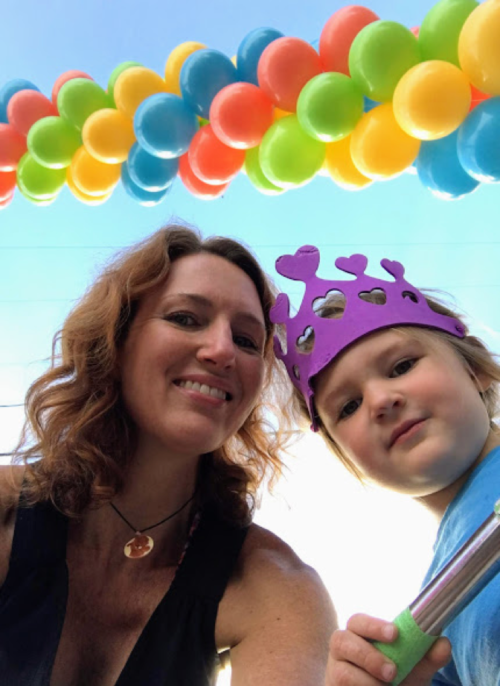
Taking time to find the rainbows
Affording anything, however, must come with financial sacrifice in other areas of our lives. We’ve all seen examples of people driving around in very fancy cars despite meager earnings. I’ve been to third world countries where a family shack contains a large screen TV. Everything we buy is a choice and is conversely a choice in the opposite realm (against saving or spending on something else). How much is an extra hour a day with your child worth to you? Is it worth not having a cleaning lady, taking a 30% pay cut, moving to a smaller house? In addition, there are degrees of choice here; you can choose to NOT buy the nicest item you can afford. The common belief that everyone buys the nicest things “they can afford” leads to a false evaluation of success based on material goods.
Of all the things I value, time with my family sits at the top of the list. I hope someday my daughter will understand this concept when she wants me to buy her something that I choose not to buy. The best thing we can do is to live our lives in alignment with our respective values and provide an example for our children.
Don't miss out on future blog content, join my email list!
Read MoreThis past year has been an amazing year of growth and change for me. It left me realizing I had to find a way to optimize my life.
In one year, I became a mom, I moved to support my fiancé's career and to get our family into a better place financially. I left my academic practice in New York and joined a private practice. Moving to a new city with a newborn in tow means leaving all your friends behind. Meeting new friends as a new mom is challenging.
I’ve learned a lot about myself. For one thing, I’ve learned to be honest with myself. I’ve also learned that I can’t do everything. Being a mom, a physician, running the household, and trying to run a side business – well that’s more than enough to make anyone go a little crazy.
I spent a lot of time and trial and error trying to optimize my life. One mantra I really took to heart is that time is our most precious resource. It truly is.
Time Is Our Most Precious Resource
How I Optimize My Life
So I’d like to share my 5 life hacks and tips I’ve implemented to optimize my life so that I am freed up to spend time where I want.
# 1. Outsource _________ .
I love to cook. However, in the immediate postpartum and beyond, I found that I really couldn’t find time to cook. In fact, I found it it quite stressful to think about meal planning. I went through several iterations of how to get help in this area initially. Truthfully, I felt a little guilty for not wanting to cook for my family (and I know how to cook so it wasn't a skill issue).
I had to give myself permission to spend on something that would make my life easier. It may not be forever.
My mother took care of me and baby Jack until he was six and half months old. Picture home cooked Korean food every day while I could focus on breastfeeding and recovering from childbirth. Once that ended and I was back at work, I found it challenging to feed myself and my fiancé good food. I initially used a prepared meal service that cooked all the food and delivered it. I would just need to heat them up in the oven or microwave. It was not the cheapest option but it filled a need, so we did that for a month or two.
When I felt that I could devote more time to this area I then turned to meal planning. We have an instant pot. In case you’re not familiar – how could you not know about this already? – it is an electric pressure cooker. You can make “dump and cook” meals. I still found it challenging to actually plan meals for the week and finish up all the food we purchased. You can only have so many taco nights ….
I ran out of steam in the meal planning area. Our current situation is that we now subscribe to a meal prep service such as Sun Basket and Marley Spoon (our current favorites). We usually choose the paleo-like options and get 3 meal kits a week. This combined with hack #2 below has been a killer combination for us.
# 2. Hire A Part-Time Wife
Why do women physician moms think they have do everything? Most of us work full time in our demanding jobs as physicians then come home to immediately transition to being mom and housewife. Combine that with a maybe not so equal partner (in terms of division of labor)- this is surely a recipe for lots of unhappiness. Thankfully, Matt likes to cook and do laundry (!). But the truth of the matter is we both work, so this is an area that we could use some help.
We have a cleaning service that comes every two weeks to do a thorough cleaning of our apartment. That was a no brainer.
But the best hack I have found to date in this area is who I called my part-time wife. She is a part-time nanny for another local physician mom. She comes to our place 2 to 3 times a week. When she comes by, she organizes & tidies up (puts away all of Jack's toys, folds blankets), unloads the dishwasher, wipes down counter tops, removes garbage & boxes, waters plants, and does tasks like get the coffee pot ready for the next morning. Additionally, she’ll do the laundry and fold it and put it away. Magic.
We come home to a clean and tidy home. It is mentally calming and relaxing to come home to this!
# 3. Take Care Of Your Body
Like many moms, I gained a little too much weight while I was pregnant. And my body was a bit of a wreck after childbirth. It was also in the middle of northeast winter when Jack was a newborn. I have a gym downstairs in my building. But I know myself and know that I work best in a class where someone is literally telling me what to do. Previously, I used to work out at Orange Theory in New York – when it was across the street.
I hired a personal trainer. I worked with him 1-2 times a week over several months. Eventually, I got back my strength and core training with Mike. Hiring Mike was probably one of the best decisions I ever made for myself. (And if you’re in the Philly area you should definitely look him up!).
# 4. Clear Your Mind
I don't know about you, but my mind is always buzzing with ideas and thoughts. And my to do list. And that patient I saw yesterday. It's enough to drive most people mad.
I started using Headspace to start my day. It's a phone app that walks you through a guided meditation. Also, I started using Asana to organize my business and my personal life. Think bullet journal in a digital format. I tried using a traditional bullet journal but it just didn't work for me.
# 5. Invest in YOU
 And finally, my latest and what I consider my best gift to myself is working with a coach. Life coaches work with you to remove the barriers to your best authentic self. Our dreams and reality are limited by our thoughts. I guess you could call Sunny my thought coach. She's also my business coach. She points out when my thoughts aren’t serving me and encourages me to transform them into something that will call me into action. My first few calls with her were all about me feeling completely overwhelmed with everything on my plate. I mean there’s just no time to do all the things I want to do and that’s just the truth!
And finally, my latest and what I consider my best gift to myself is working with a coach. Life coaches work with you to remove the barriers to your best authentic self. Our dreams and reality are limited by our thoughts. I guess you could call Sunny my thought coach. She's also my business coach. She points out when my thoughts aren’t serving me and encourages me to transform them into something that will call me into action. My first few calls with her were all about me feeling completely overwhelmed with everything on my plate. I mean there’s just no time to do all the things I want to do and that’s just the truth!
Well clearly it's not. It's just a thought. She doesn't let me indulge in thoughts that don't serve me. Although sometimes I really want to.
Final Thoughts on How I Optimize My Life
Using these five hacks has really helped me optimize my life despite all of the new challenges and commitments I've taken on. As time changes, I know that I'll continue to rely on these same strategies and come up with new ones. If you find yourself looking to get more from your day, week, and month, try out one of these tips today.
What life hack or tip have you implemented to free up your free time? Comment below!
Don't miss out on future blog content, join my email list!]]>
Read MoreWelcome to another installment of Interviews with Real Female Physicians. The goal of this series is to share their story so that you, the reader, may learn and be inspired from their experiences – good and bad. We all come from different backgrounds and have different situations. Some of you are married, some are not, some with kids, some with blended families. Let’s show other women that any of these can work financially! So let's introduce our next woman physician rockstar – Dawn.
Tell us about yourself:
I’m a 44 year old anesthesiologist living with my husband, almost 3 year old daughter, and almost 10 year old whippet dog in Salt Lake City, UT. I’ve lived in Salt Lake for 17 years, initially drawn here by a passion for rock climbing and outdoor sports, but my husband and I are originally from Arizona. We met in college and both pursued engineering degrees. After some experience working as engineers, we both decided to take different paths (he chose JD and I chose MD). I’ve been an attending anesthesiologist for over 7 years now. My practice is unique in that I am a non-academic faculty member of a large group at an academic hospital. I do all my own cases and see a wide variety of patients, but I have no call, weekend duties, research, or administrative duties. I also provide anesthesia for our university fertility clinic, a “side gig” which is near and dear to my heart because I was an IVF patient at the same clinic! I currently work two full days in the OR and 1-2 mornings a week at the fertility clinic.
Did you graduate with student loans?
My husband and I were both fortunate to have full-ride scholarships to a state university for our undergraduate degrees. He also attended the same state university for law school, where the tuition was heavily subsidized because his father works there as a professor. I attended a state university for medical school and did take out some loans, but my husband was working as a lawyer during that time so he was able to provide a majority of the financial support.
How fast (or not) are you paying them off?
Upon finishing residency, I had a relatively low amount to pay off. Despite a ridiculously low interest rate, I paid the loans in full within a few years of working as an attending.Financial aspects of kids
When did you have them?
For years my husband and I spent all our free time rock climbing and traveling, and we weren’t sure that we wanted to have children. That changed somewhere mid-residency, around the time that I turned 35. Suddenly, we felt differently about wanting to add to our family. Only I was experiencing some unusual symptoms and hadn’t had a period in over a year, all of which I attributed to the stress of being a resident. To make a long story short, I embarked on a diagnostic odyssey that lasted several months, included FMLA time, and culminated in the finding of a large pituitary adenoma. After resection (still during residency), complications, ICU stays, going on lifetime pituitary hormone replacement, and in vitro fertilization, I finally had my “miracle baby” at age 41!
Are you planning to fund their college expenses?
Although we were quite late at becoming first-time parents, we felt very mentally – and financially – prepared for the arrival of our daughter. In fact, around the time she was born, we started reading about the Financial Independence movement and realized that we were already financially independent. We were living well below our means and were used to flexible spending – being able to modulate our lifestyle and live cheaply if necessary – from many periods on the road as climbers in our twenties. In addition, we have a relatively frugal do-it-yourself type of outlook on most things.
Regarding our daughter, we opened a Utah 529 Plan at her birth, and we’ve been funding it modestly ever since. We also encourage our parents to give money to her 529 instead of giving cash (or other) gifts whenever possible.We could put more into her 529 each year, but we currently elect to fund it with the minimum yearly contribution necessary to get tax credits and invest our money in other ways. Although we see the importance of the 529 fund, we don’t plan to send her to private schools and we don’t plan to demand that she attend university. With the vast entrepreneurial opportunities brought by the explosion of the internet and social media, she could end up finding something she loves to do without a college degree. By that time, there should be a considerable chunk of $ in the account, but we hope to teach her lots of lessons about financial responsibility and value along the way. Both of us attended public schools and state universities for all of our education, and in the end, we had the same (or better) career opportunities as those who spent tens of thousands of dollars on their respective degrees.
What are your child care expenses? Are your kids in private or public school? What is the cost including after care if needed.
Although my husband and I both work part time, we spend money on opportunities for our daughter to have abundant social interactions with other children and adults. She currently attends one conventional full-day preschool daycare program two days a week and one decidedly unconventional outdoor play-based preschool two half-days a week. We love that she gets this mix of home time and away time, and we were never interested in hiring a nanny who is with her all day, every workday. Mornings when I work in the OR can be fairly hectic, so we also hired a regular babysitter who comes to our house for two hours on those mornings. She plays with, feeds and dresses our daughter before taking her to her preschool. It’s so helpful!
My husband and I both try to make our days off coincide with my daughter’s half-day outdoor preschool. That way, we get some personal time to spend alone or with each other while she’s playing in the forest. Also, we are very savvy about using our gym’s short-term daycare hours on the other days of the week. For all these permutations of childcare, I estimate that we pay about $1000-1200 per month. Every penny is worth it. Eventually as she gets older, we hope to convert all her preschool time to the outdoor play-based program, as it is more in line with our educational values. We also plan to unschool her when she reaches elementary school age, while continuing to expose her to whatever sports or artistic programs she takes an interest in.
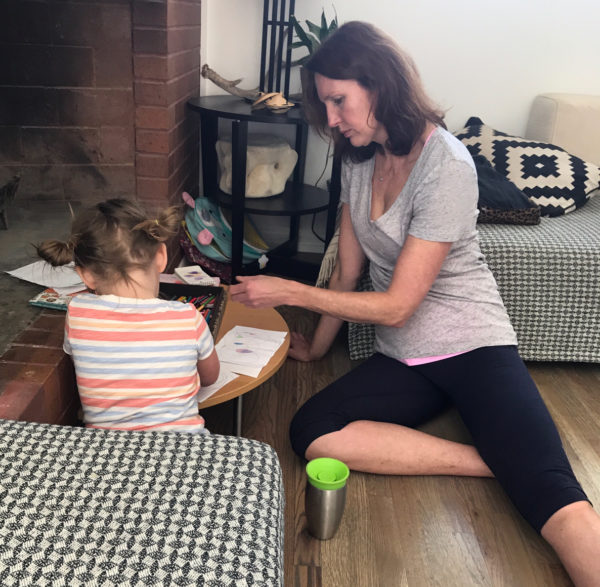
Financial aspects of marriage
Are you married?
I’ve been married to my husband for 19 years, and we started dating near the beginning of college. We’ve truly “grown up” together and become more aligned in our values over the years.We have separate bank accounts. We dated for a long time before getting married and just never merged the accounts. There’s no regimented system, but we transfer money back and forth between accounts and take turns paying for various expenses depending on account balances. He makes more money than I do, but as an owner of his own law practice, his income is quite variable. He also allocates retirement money differently than I do, given that he is a business owner and I am a W2 employee. While we decide on big-picture money management issues together, he actually manages all of our finances in a Quicken program that combines all of our money transactions. He also does the taxes every year.
Do you and your husband agree on finances?
At first, my husband and I had very different views about spending. Overall, we agreed on the larger financial priorities, but I was much more of an emotional spender and he very logically saw money as “life energy” early on – before it was trendy. I wrote extensively about this in a recent post on my blog; my conversion to a more minimalist/valueist spending style didn’t happen until I became a mother and saw the simplicity and decreased stress that it brought to our household.Are you the breadwinner?
Interestingly, we’ve taken turns being the “breadwinner” of the household. I made the money straight out of undergrad that allowed us to buy our first home while he was in law school. Later, the tables turned when I was in medical school and he was establishing himself as a lawyer.Have you experienced a financial catastrophe?
When I was fresh out of undergraduate school working as an engineer, I made the mistake of succumbing to lifestyle inflation and spending most of my earnings rather than saving them. I elected to rent an expensive apartment and spent lots of money on clothes – things that don’t matter as much to me today. I had a 401k with corporate matching, but I didn’t even come close to maximizing my pre-tax contributions. I wish I had done this and continued to “live like a college student”, because that fund would be worth a lot more today (20 years later)! Now I make the maximum contributions to my retirement accounts and never even see the money before it’s allocated.
While I’ve been fortunate to not suffer a financial catastrophe, I have experienced a significant health crisis (see above). It changes your outlook on everything in your life – what’s important to you, how you want to spend your time, your money, etc. Because of my tumor, I no longer qualify for individual disability insurance, but we basically self-insure. We’re flexible enough in our spending to be able to deal with such a financial loss. We self-funded $50k in IVF fees over a three–year period by being financially flexible and cutting back on some unneeded expenses.
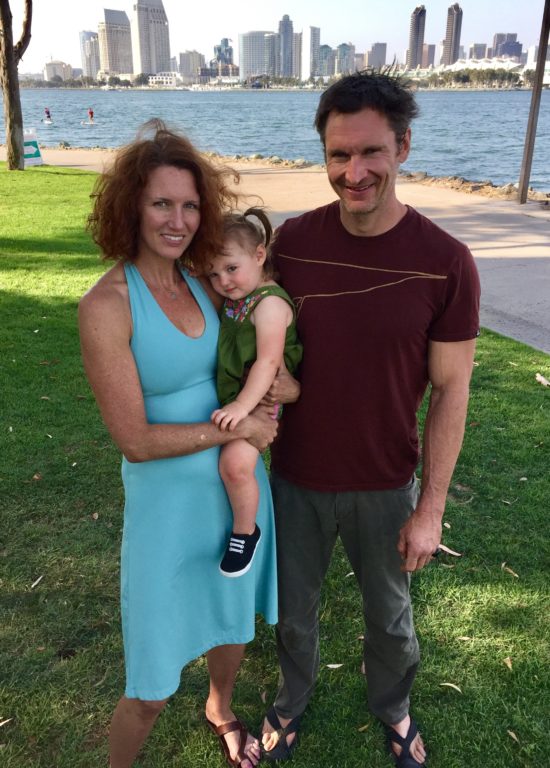
General Finances
What’s your FI (financial independence) number?
We consider ourselves FI by the 4% rule with a very reasonable yearly living amount, but neither of us are actually retired. We both enjoy our respective work in the capacity that we’re currently doing it – very part time and with ample vacation sprinkled in. The one thing we’d like to do in the near future is travel more with our daughter. My husband’s work is completely location-independent, but mine currently is not. So I might be adjusting things soon to accommodate for that. This may mean taking a sabbatical from my current position, going seasonal, or doing some locum tenens work. Also, I hope to grow my blog and social media presence, and potentially do more writing and speaking gigs.What is your net worth? How are you saving for FI/retirement?
Overall, our asset allocation is roughly 60% equities, 30% real estate, 10% cash. Simplicity is my theme word; it’s what I’m constantly striving for in many areas of my life, finances included. We are completely debt free, we self-insure for life and disability, we recently downsized our living space and also sold one of three properties. Most of our money is in the VTSAX index fund, and we don’t look at the gains and losses too frequently.What does FI/retirement mean to you? What does it look like?
I see our FI as a combination of good financial decisions, high income potential for both partners from a young age (given that we started out as engineers), and the ability to spend flexibly. Not everyone will have all of these factors in their FI equation, but figuring out your financial strengths and weaknesses can help to clarify and refine your own path to FI.
Any parting words of wisdom?
Tell readers a fun/random fact about you
When I meet people, they always want to know how tall I am. I’m 6’1” with no shoes on. And I have rock climbed in seven different countries.
And finally, where can people connect with you?
I blog at PracticeBalance.com. I’ve been writing more about money issues (mainly the mindset side of things) after meeting Bonnie this year, so check out my most recent posts and then work backwards from there to read about wellness, work-life balance, parenting, anesthesia, infertility… you name it. I’m also on Instagram @PracticeBalance, Twitter @DLBakerMD, and Facebook as Dawn Baker.
And … that's a wrap! If you're interested in doing this please send me an email – I'd love to hear from you!
I'm so excited more women physicians are blogging about money and living a life of their own choosing. Definitely head over to Dawn's blog!]]> Read MoreWelcome to another installment of Interviews with Real Female Physicians. The goal of this series is to share their story so that you, the reader, may learn and be inspired from their experiences – good and bad. We all come from different backgrounds and have different situations. Some of you are married, some are not, some with kids, some with blended families. Let’s show other women that any of these can work financially!
So let's introduce our next woman physician rockstar – Eliza from Minimal MD.
Tell us about yourself:
I'm Eliza from Minimal MD. I love my life as a 35 year old retired dermatologist, living in the Midwest with my husband and two kids. I'm really into minimalism and travel.
Did you graduate with student loans?
Yes, I went to a private medical school. The total payback over a ten year term was projected at $250,000, including interest with rates of 1-9%.
I paid off my first small loan during my intern year to avoid the terrible 9% interest rate. Then I got serious about the loan with the next highest rate. I graduated from residency in 2012, and made my last loan payment in April of 2017.
Financial aspects of kids
I had both kids during residency.
The out of pocket cost for two kids at our on campus daycare was $2,400 a month. Luckily, they had a financial hardship program. It brought the cost for our first child down from $1,200 to $400. The amount varied every few months. As soon as I graduated, I went to a part time position, working 2.5 days a week.
We tried a highly rated Montessori school for our daughter. It was $9,000 for a half day program that didn't really meet her academic needs. That disaster, on both the educational and financial fronts, has made me really skeptical about paying lots of money for private school tuition. I think carefully now about the opportunities I could provide with a similar amount of money.
We currently live in an area that doesn't even have private schools. Most recently, we have decided to homeschool because I really like the flexibility to be able to travel with the kids now that I am retired. We will take off for several weeks at a time to explore the U.S. or Europe.

Financial aspects of marriage
I am very happily married. My husband is loving his career right now, so he continues to work. Retiring early isn't for everyone. Luckily, he is a teacher, so we have been able to just relax and travel together all summer.
What financial mistakes have you made?
I've already mentioned the private school fiasco. Our second big financial mistake was living apart during five of our early years of marriage. Having separate households and commuting frequently across the country is not a way to build wealth. For the record, it isn't a fun way to parent two small children either.
Our next mistake was regarding our home purchase. When we bought our first home, we wanted to live in a certain public school district. We also wanted a fenced in yard for the kids and a basement to protect us from tornadoes. The only house that fit those specifications was a 4,700 square feet custom built home. We had no money for a down payment because we spent so much paying down my student loan debt, so we financed 100% of the purchase price and took an adjustable rate loan.
In addition to the loan terms, the house was a lot to take care of and many repairs were more costly because of the size of the home.
The saving grace to the situation was that we then bought a home well within our price range. We took on only 25-33% of the loan that the bank would have allowed us to qualify for. Also, rather than accepting the loan as a part of life, we paid as much as we could each month and knocked out the entire mortgage in 2.5 years. We moved recently and used the equity from the first house to pay cash for a smaller home.

What’s your FI (financial independence) number?
We used the general advice of 25x yearly expenses to achieve financial independence. I don't include home equity or the 529 account money in that number.
Do you have disability insurance?
I did have own occupation disability when I worked. I have cancelled that since the policy only applied when I was working anyway and was the largest line item in our monthly budget. I also canceled my husband's primary life insurance this year since we are financially independent. We do have some other umbrella and supplemental life insurance policies that are just so inexpensive that they barely register. I'm constantly adjusting the coverage.
If you are FI or “retired” – what are you doing?
I left my clinic job in June 2017 and have spent the last year traveling with my homeschooled kids across the U.S. and to England, France, Iceland, Scotland, Sweden, and Denmark. To keep my license active and engage with peers, I have done some free skin cancer screenings and locums work averaging one to two days a month. I've also downsized from the 4700sf house to a 1350sf house plus basement on 5 acres of forest.
With so many changes this year, I'm still adjusting and growing into this phase of my life. You can read more about my minimalism, financial story, and travel experiences at MinimalMD.com, or connect with me via Facebook.
And … that's a wrap! If you're interested in doing this please send me an email – I'd love to hear from you!
I totally agree that minimalism and simplifying life has great rewards. Kudos to Eliza for achieving FI!]]>
Read MoreWelcome to another installment of Interviews with Real Female Physicians. The goal of this series is to share their story so that you, the reader, may learn and be inspired from their experiences – good and bad. We all come from different backgrounds and have different situations. Some of you are married, some are not, some with kids, some with blended families. Let’s show other women that any of these can work financially! So let's introduce our next woman physician rockstar –Teddi.
Tell us about yourself:
I’m almost 34 and am a community based academic Emergency Medicine attending. I’m from a blue-collar background in Oklahoma. Worked full time and moved out in high school and barely graduated. Became an ICU nurse. Applied to 1 med school and was accepted (University of Oklahoma), had a big chip on my shoulder, and went into General Surgery at Northwestern in Chicago. Met my husband who’s an academic Neuroradiologist while we were both in training. I found new perspective about the balance that I wanted in my life. I quit for that reason and many more. During my PGY3 going to PGY4 year I lucked out into a spot in emergency medicine at the same institution. I did not consider the financial impact at the time, but I ended up with shorter training, no fellowship and a specialty with reasonable pay. Now I’m loving my 0.8 FTE ER nocturnist life and have a little 3-year-old daughter. We live super local and frugally because I want riches and financial independence in like 3-5 years. I’ve been investing small amounts since college, but got really into personal finance as I finished my training. I like to learn absolutely everything about a subject, so definitely can be pushy with my excitement in my activities. I love to travel and traveled extensively, pre kiddo, but we all go somewhere on a plane every month or so. I love hosting elaborate get togethers, so am working towards a dream home as soon as I can convince my hubs. Cook at least 5 nights a week and am an avid city gardener. I’m not really crafty, but more of a person that thinks they can learn anything and don’t like to pay for something I can do myself. I think financial literacy is very important and we’ve been short changed during our medical training, so I try to get the word out as best I can.Did you graduate with student loans?
I had around $237,000 at 6.8% from medical school. Nursing school was essentially free. Had made several years headway into PSLF and was kicked out on a technicality that I didn’t understand at the time. I finished training in 2016. Spouse had around $300k at 1.8%. He finished training in 2012. We didn't even keep track at first as we paid them, but from late 2015 to NYE 2017, paid off all of the remainder of initial debt around $550,000.
Financial aspects of kids
When did you have them?
Had my daughter during my second year of Emergency Medicine residency (PGY-5), which was rough, and I wouldn't recommend. Planning on having a second, which will greatly affect our home capacity and probably child-care costs.Are you planning to fund their college expenses?
We plan on paying for most, if not all. I hated starting life so in debt. Started saving the annual max last year when our daughter was 2, so only have to save for another couple of big years, then we hope the market takes care of the rest.What are your child care expenses?
We pay $1300/mo. for 3 day a week daycare and then frequent babysitting.Financial aspects of marriage
Are you married?
Yes we are married.Did you get a pre-nuptial or post-nuptial agreement?
No, didn't even really consider it but both were in massive debt.Do you and your husband agree on finances?
We are both very motivated to see some money accumulate in our bank account, but do go about things differently. He found the blogger Mr. Money Mustache first, but was already an anti-consumer and rides his bike to work. My husband prefers to play it safe with investing, and is tough to make plans with since he could live in a shack and be a radiologist forever on a w2 salary. It helped to get used to living on a fraction of my spouse’s new attending paycheck while paying down loans and using my resident salary to help fund retirement accounts early. Then we saved 100% of my new income for over a year that I’ve been out of training.Have you experienced a financial catastrophe?
Our house caught fire my second year of EM residency, but we were able to spend about 50k above the 400k-600k insurance claim to renovate it to our liking. It was very stressful at the time, but no real financial hit. Two years of a gut renovation later- we have a great townhome.
General Finances
What’s your FI (financial independence) number?
We haven’t decided. I feel pretty financially independent now without debt other than our mortgage. Maybe around 2.5 mil if we wanted to quit working completely.Who handles the finances in your relationship? Are you DIY or do you have a financial advisor?
I handle the money and we have a CFP that sold us our insurance and disability, but doesn't manage our investment accounts. We also have a CFP/CPA that does our taxes and gives us annual strategy/pep talk that is extremely helpful.What is your net worth?
$1.1 million. We include retirement accounts and the equity that we’ve paid into our mortgagesHow are you saving for FI/retirement?
Other than destroying debt with gazelle intensity – we currently have two 401(k)s, two Roth IRAs and two 457(b)s plus I have a solo 401k. We both get almost the full employer match allowed. I started a custodial account last year that we contribute to after our 529 contribution goal is met. Then we have a taxable account that I contribute to every time I make a wise financial decision like cleaning my own house or grooming my dog, etc. 90% index funds plus individual stocks. I have one 6-unit rental property that was amazing income during residency but lately has been just breaking even. We also pay extra on our mortgage every month. Now that we are done with loans, we will be ramping up our FIRE savings to work however we find most enjoyable.One thing you wish you knew:
The power of compound interest. I had student loan money sitting in a no interest savings account for like 5 years, accumulating 6.8% interest in debt. I used the money for a fancy wedding, fancy cars and multiple European vacations before I thought about financial independence. You can never out earn bad spending habits!Do you have insurance?
We are probably over insured, and now have to figure out how to back down a little since our debt is more manageable. We have disability, life, auto and umbrella insurance.What does FI/retirement mean to you? What does it look like?
One, I love to entertain and hope to have a beautiful home somewhere that is probably not Chicago one day. Two, I would like to contribute more to the future of medicine and to support women advancing in politics. I think having money lets you be totally free.Do you give to charity? If so, where and why?
I got extra interested in personal finance around the time that our current president unexpectedly took office. I’ve been concerned about the decrease in public funding of charities, so right now I donate all the profit from one side gig to different charities each month. I hope to be able to make more meaningful change when I am done with the child-creating and wealth-building phase of my career. I don’t think our taxes are required to pay for everything, so I don’t mind funding some things privately.Any parting words of wisdom?
When considering a job, things that can be readily measured get too much attention, for example, salary and vacation time. Aspects that are hard to evaluate like an interesting work environment, stress and morale are more important. Have a longer, more productive career without burnout. You can live well in an expensive area if you balance a short commute and manageable job so that you don’t have to subcontract out all the adulting (cooking, cleaning, grocery shopping, parenting) of your life. My take is to skip the fancy car, house and country club but consider living somewhere great that your day-to-day is really full of vibrant people and activities.And … that's a wrap! If you're interested in doing this please send me an email – I'd love to hear from you!
I loved reading Teddi's story and I hope you did too. I couldn't agree more with her advice about seeking a long career without burnout.]]> Read MoreHaving a baby and becoming a mom is stressful. There's no denying that. Planning for a maternity leave can be stressful, too. If you're expecting your first baby (or even a second or a third!), you might be wondering what a longer maternity leave looks like. Here's how I spent (and funded!) 16 weeks of maternity leave.
A Word About Stress
Everyone handles stress differently. No two births are the same. There are so many variables when it comes to maternity leaves.
For me, well, my leave was pretty stressful.
There was moving and almost dying along the way. At some point (OK, multiple points), I was overwhelmed and probably met criteria for postpartum anxiety. I spoke to a psychiatrist friend who pointed out that I pretty much experienced all the top life stressors except death of a loved one (and let's keep it that way!) within a 4 month period:
- New baby (especially the first one)
- Moving
- New Job
- Serious illness
She also pointed out that what's especially hard for new mothers is that no one is taking care of us. We are always taking care of baby (and spouse).
A Look at 16 Weeks of Maternity Leave
I feel lucky that my mother lives nearby enough and has been with us most weeks.
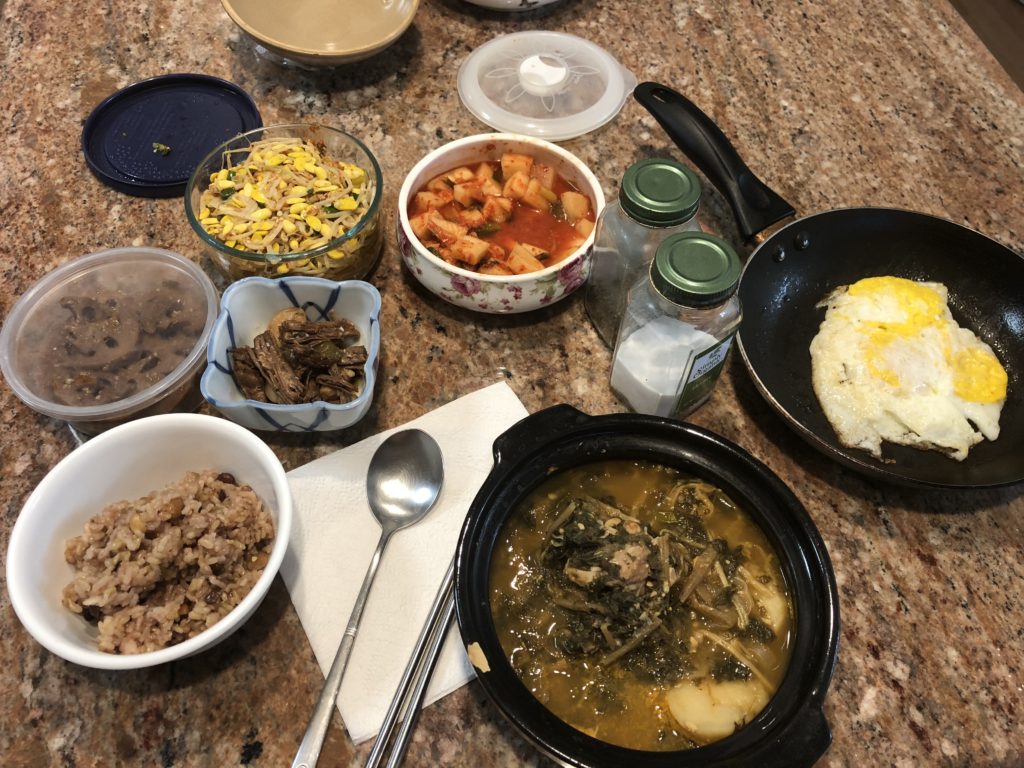
Breakfast of Champions – home cooked Korean food
So, I decided to give myself a pass on pretty much everything. For me, that meant a lot of stopping.
I stopped worrying about…
- Posting consistently on this blog.
- My new postpartum figure (well, kind of).
- Every single bit of what I was eating.
- Spending too much especially if it made my life easier during this time.
I am still trying to worry less about the not fully unpacked apartment.
Oh, and I finally figured out the biggest fallacy of “maternity leave” — nothing gets done despite not “going to work.”
Funding a Longer Maternity Leave
Throughout my leave, I was often asked how are we able to afford taking 16 weeks of mostly unpaid leave.
Let's back up and actually look at my leave. I took 16 weeks of leave, and it was only very partially paid. 6 weeks paid at my old base salary was all I got.
So how did we swing the full 16 weeks of maternity leave?
The answer is simple: We lived below our means, and we saved for it. Remember, you have about 9 months to save for maternity leave!
Let's go back to the idea of living below our means. In other words, we do not need our whole paycheck to get by. While I was pregnant, I stopped making extra payments to loans in favor of saving for this time.
Then, I had a cushion to pay for my maternity leave.
It definitely didn't feel good to watch my checking account balance only decrease during my leave, but seeing his face daily more than made up for it.
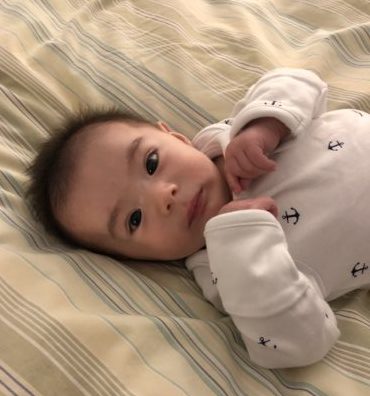
What are you looking at?
Final Thoughts on 16 Weeks of Maternity Leave
Isn't this what it's all about, Moms? I hope everyone about to have a baby can have the freedom to spend more than the typical 4-6 weeks of doctor maternity leave.
Look hard at your budget while your expecting, and see what you can do to save a bit extra. Even if you can't fund 16 weeks of leave, anything extra counts. You won't regret it.
What do you think of funding a longer leave? Comment below!]]>
Read More

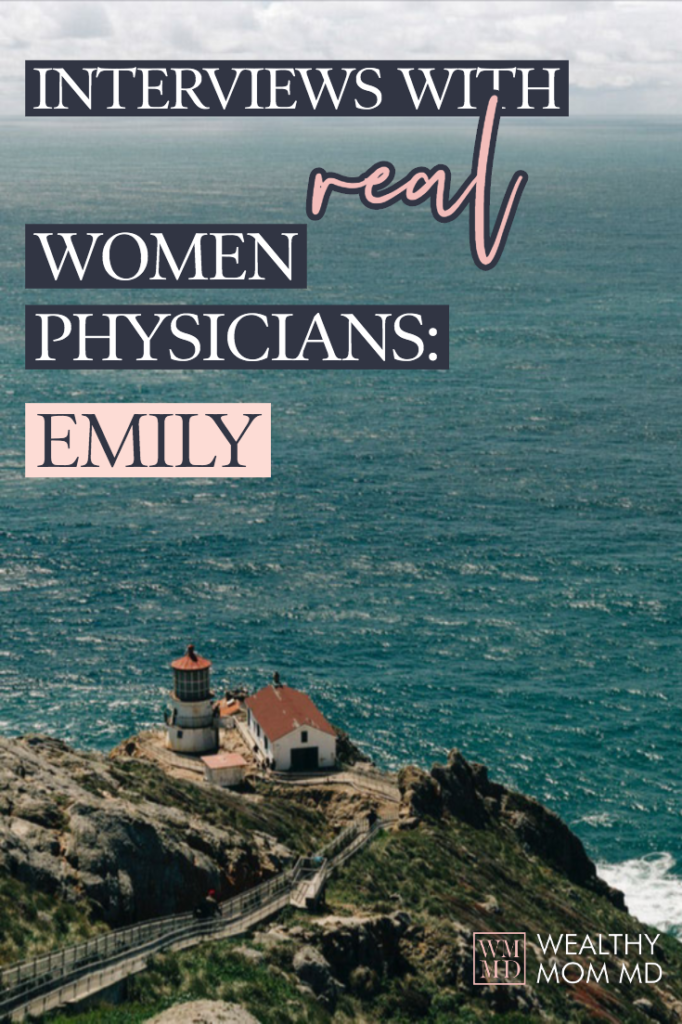

 Tell us about yourself:
Tell us about yourself:




